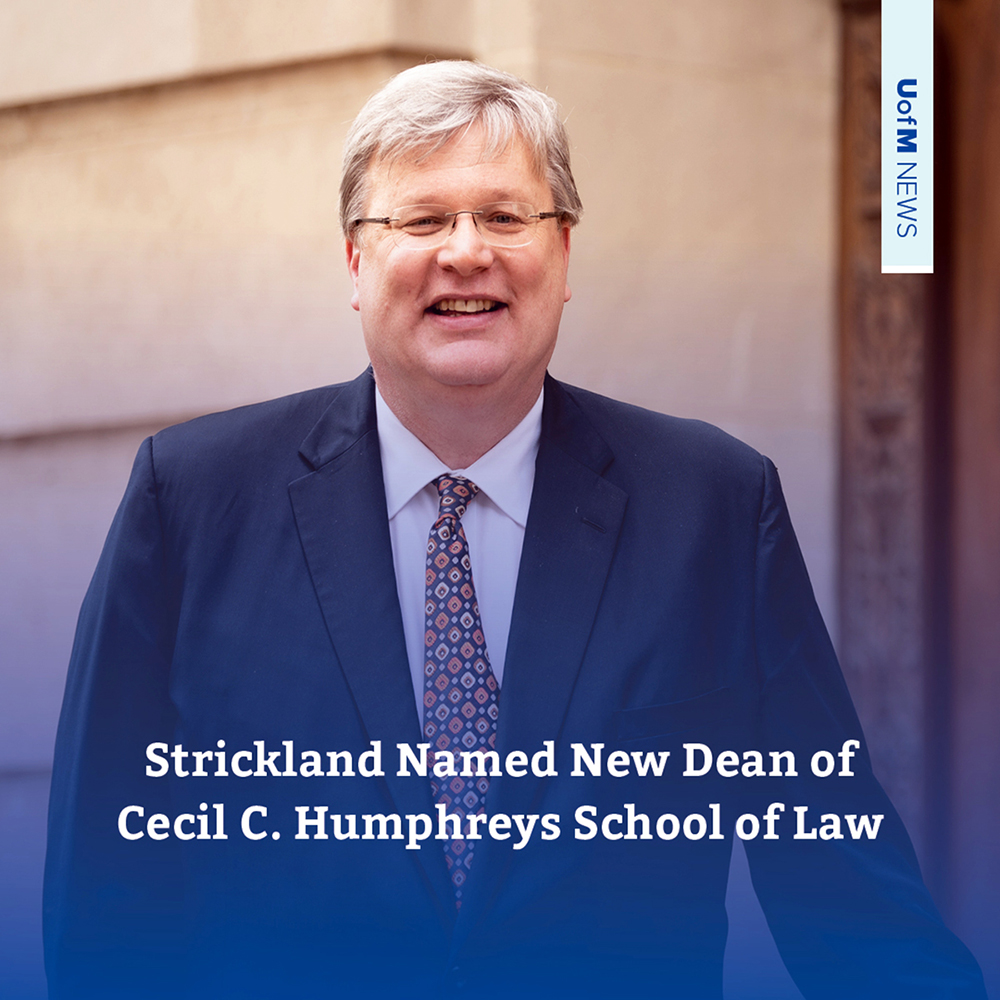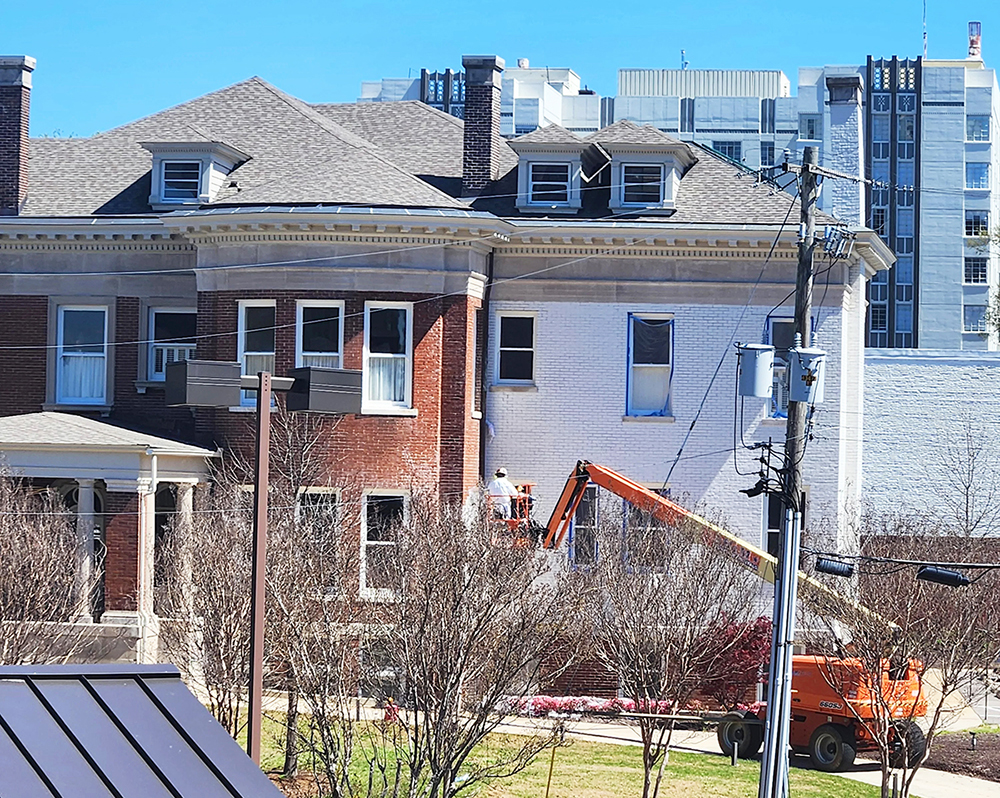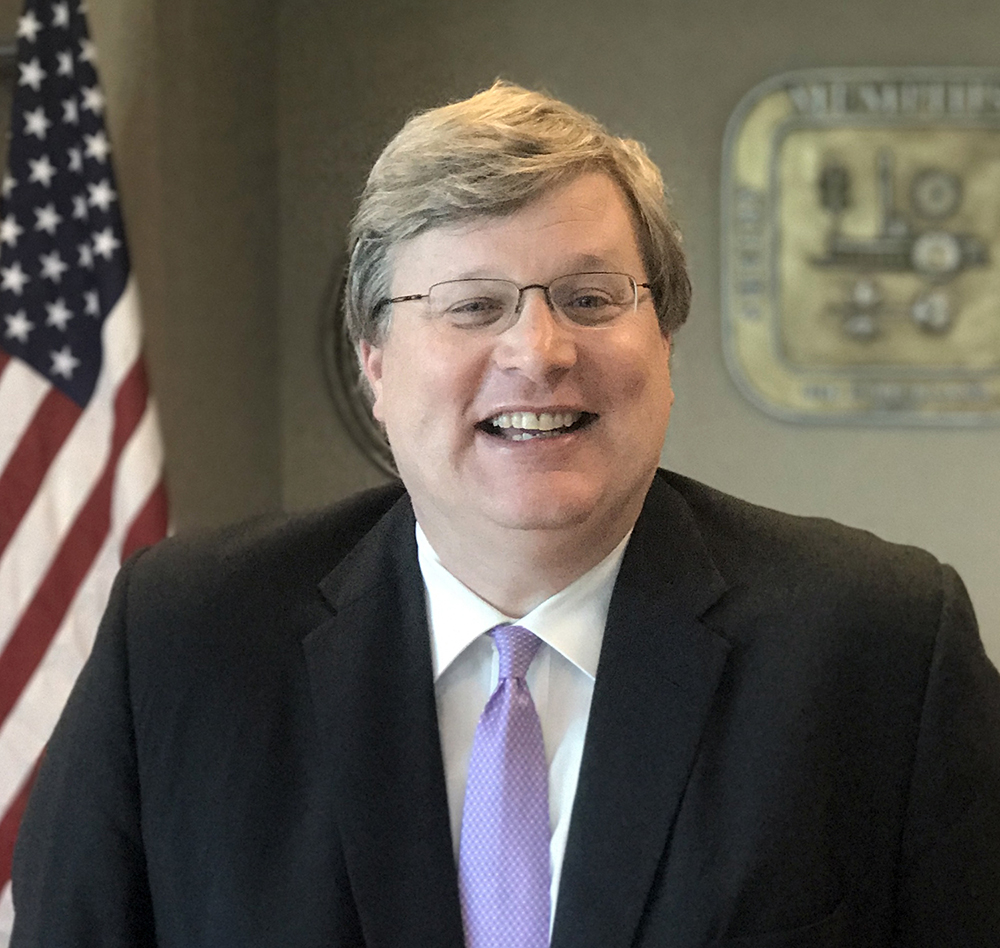The news is out that Jim Strickland — recently the two-term mayor of Memphis and before that a member of the city council — is the prime candidate to become the next dean of law at the University of Memphis.
There are those who would see that outcome, the appointment of a non-academic, as something strange, or at the very least, untypical. To disabuse themselves of that notion, they should think no further than the name of the institution Strickland would accede to the head of — the Cecil C. Humphreys School of Law.
The eponymous Humphreys, though, strictly speaking, no academic, achieved his early renown as the head football coach of Memphis State College in the prewar years of 1939-41. He later served as the school’s athletic director. Still later, Humphreys would become president of Memphis State itself, which under his leadership would become the super-charged multi-disciplinary University of Memphis.
Hence, and quite appropriately, his name graces the university’s school of law, which for years led all degree-granting schools of law in Tennessee in the important metric of the percentage of its graduates passing the bar exam, but now, reportedly, has fallen somewhat off that mark.
Could Strickland, who lobbied for the job, be the right man to lead the law school into its next period of achievement and growth?
Consider that he owns a Juris Doctor degree from the law school and currently serves as an adjunct professor there. And though, like any politician, he has his detractors, his service at the helm of Memphis city government was deemed satisfactory enough by his constituents to gain him two full terms and to generate the momentum for a referendum which, had it passed, would have enabled a third.
Consider, further, that Strickland is the first Memphis mayor in almost half a century to leave that office altogether on his own terms. Not since the late Wyeth Chandler resigned the office in 1982 to become a judge had a Memphis mayor clearly done that.
Chandler’s successor, Dick Hackett, was defeated for reelection in 1991 by Willie Herenton, who in his turn was elected five times before bowing to various pressures and resigning in the middle of his fifth term. (“Retired” is how Herenton put it, and arguably he too departed voluntarily, though, to say the least, his tenure had become shaky.)
Next up was Mayor AC Wharton, who served from 2009 until he was upset by Strickland in the election of 2015.
To be sure, Strickland, who once served as chair of the Shelby County Democratic Party, was formally censured by that party this year on account of his support for the political campaigns of assorted Republicans, but, all things considered, his exercising of bipartisan options as a nonpartisan official probably boosted his stock rather than diminished it.
The case for a Strickland appointment was further fortified surely by a study sent to all faculty members by David Russomanno, the university’s provost for academic affairs.
The document, “Non-Traditional Law Deans: Their Experiences and Those of the Law Schools that Hired Them” by one Timothy Fisher, underscored the striking number of such appointees and their successes in office.
It all remains to be seen.



